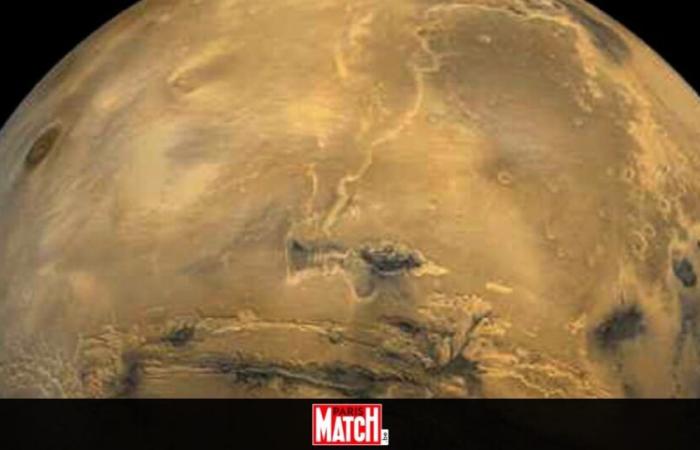
By analyzing the composition of a mineral – zircon – found in a Martian meteorite, UNIL scientists, with colleagues from Curtin University and the University of Adelaide in Australia, managed to date traces of water in the crust of Mars. According to this study, published in Science Advances, hydrothermal activity dates back 4.45 billion years, or only 100 million years after the formation of the planet.
“Our data suggests that there was water in the crust of Mars at a time comparable to the first traces of water on the Earth’s surface, around 4.4 billion years ago,” comments Jack Gillespie, first author of the study and researcher at the Faculty of Geosciences and the Environment at UNIL.
This discovery provides new elements to understand the planetary evolution of Mars, the processes that took place there and its potential to have hosted life, according to the authors.
Scientists have been working on a small piece of the meteorite NWA 7034 “Black Beauty”, discovered in the Sahara in 2011. “Black Beauty” comes from the Martian surface, and was thrown to earth during an impact on Mars there is approximately 5 to 10 million years old. The analysis focused on zircon.





